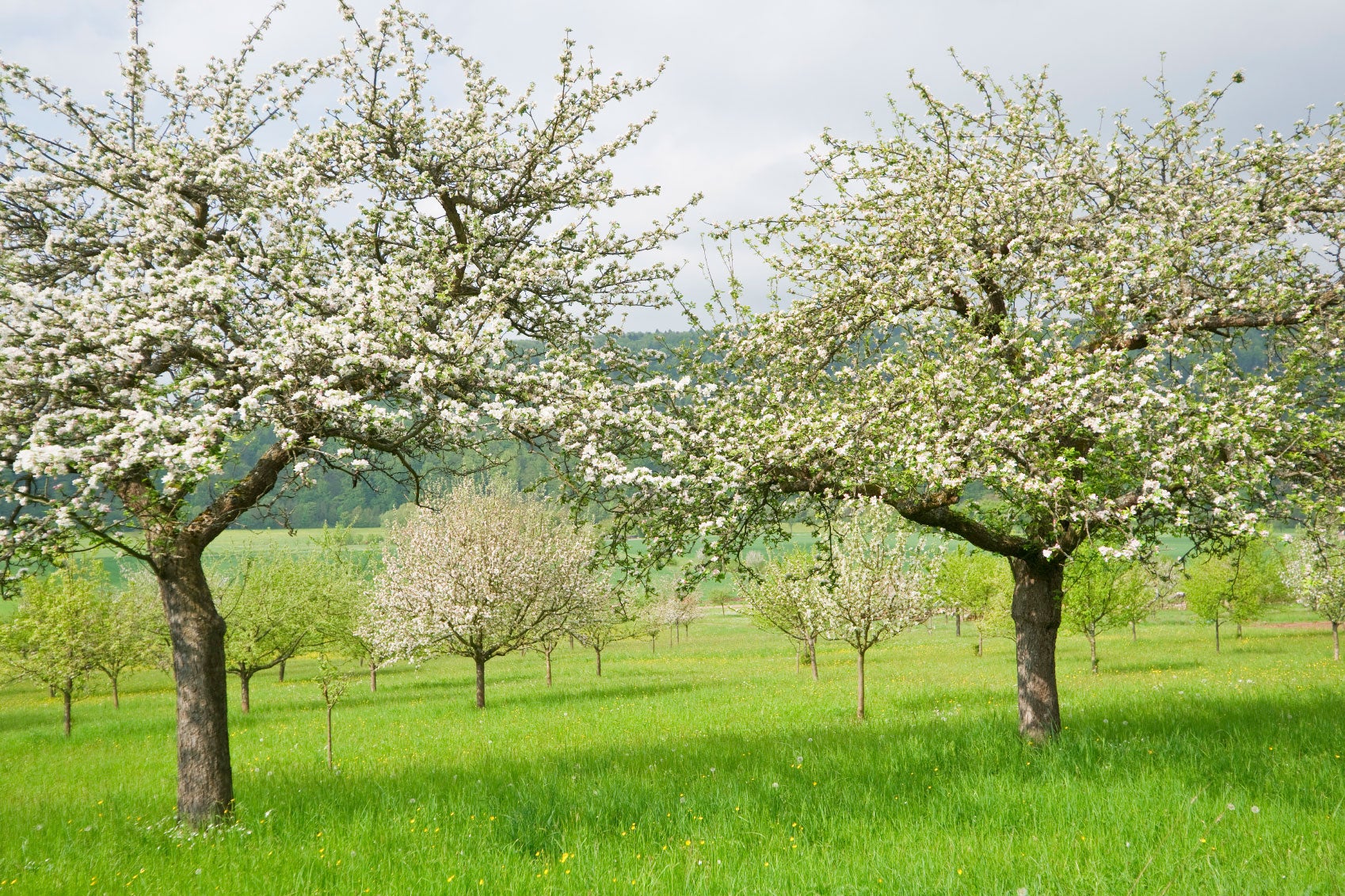
Sign up for the Gardening Know How newsletter today and receive a free copy of our e-book "How to Grow Delicious Tomatoes".
You are now subscribed
Your newsletter sign-up was successful
Cross pollination between apple trees is crucial to achieving good fruit set when growing apples. While some fruiting trees are self-fruitful or self-pollinating, apple tree pollination requires cross varieties of apples to facilitate cross pollination of apple trees. Cross pollination of apple trees must occur at bloom time wherein the pollen is transferred from the male part of the flower to the female part. Transfer of pollen from cross varieties of apple trees to alternate cross varieties is called cross pollination.
How Does Cross Pollination Between Apple Trees Work?
Cross pollination of apple trees primarily occurs with the help of industrious honeybees. Honeybees do their best work in balmy temperatures of about 65 degrees F. (18 C.) and chilly weather, rains or wind may keep the bees inside the hive—resulting in poor apple tree pollination. Pesticides, as well, put a damper on cross pollination of apple trees since pesticides are also toxic to the honeybees and should not be used during the crucial bloom time. Although terrific fliers, honeybees tend to stay within a smaller radius of the hive when cross pollination between apple trees is occurring. Therefore, growing apple trees which are situated more than 100 feet (30 m.) away may not get the apple tree pollination they require.
Cross Varieties of Apple Suggested for Cross Pollination
For apple tree pollination, cross varieties of apple need to be planted in order to ensure that fruiting occurs. Otherwise, you may find yourself having no apples. Flowering crabapples are a fabulous pollinator as they are easy to care for, bloom for a long period of time and many varieties are available; or one can select cross varieties of apple that are symbiotic when growing apples. If you are growing apples which are poor pollinators, you will need to select a cultivar that is a good pollinator. Some examples of poor pollinators are:
- Baldwin
- King
- Gravenstein
- Mutsu
- Jonagold
- Winesap
These poor pollinators should be combined with the likes of any of the following crabapples to encourage cross pollination between apple trees:
- Dolgo
- Whitney
- Manchurian
- Wickson
- Snowdrift
All apple tree varieties require some cross pollination for successful fruit set, even if they are labeled self-fruitful. Winter Banana (spur type) and Golden Delicious (spur type) are two good examples of pollinating cross varieties of apple. Closely related cultivars such as McIntosh, Early McIntosh, Cortland, and Macoun do not cross pollinate well with each other and spur types do not pollinate the parent. Bloom periods of cross varieties of apple for pollination must overlap.
Other Methods of Apple Tree Pollination
Another method of encouraging apple tree pollination is grafting, wherein a good pollinator is grafted onto the top of a less pollinating variety. This is a common practice in commercial orchards. The top of every third tree in every third row will be grafted with a good apple pollinator. Bouquets of high pollinators with fresh, open blooms may also be hung in a bucket of water from the branches of the lesser pollinating growing apples.
Cross Pollination Between Apple Trees
Once good cross varieties of apple pollinators have been introduced to poor pollinators, the most crucial element of cross pollination needs to be examined. The honeybee is one of nature's most industrious and necessary creatures and should be fostered to ensure that excellent pollination is achieved. In commercial orchards, a minimum of one hive per acre of growing apple trees is needed. In a home garden, there are usually enough wild honeybees to accomplish the pollination task, but becoming an apiarian is a rewarding and engrossing activity and would actively assist in pollination; not to mention the added benefit of some delicious honey.
Sign up for the Gardening Know How newsletter today and receive a free copy of our e-book "How to Grow Delicious Tomatoes".

Amy Grant has been gardening for 30 years and writing for 15. A professional chef and caterer, Amy's area of expertise is culinary gardening.
